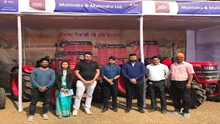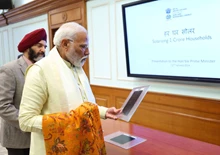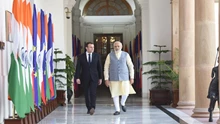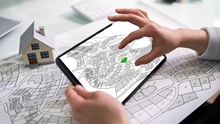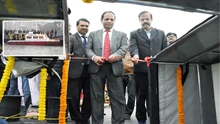
The Advanced Plant Habitat (APH) is an enclosed growth chamber, which was installed in the space station in 2018. Fitted with cameras and more than 180 sensors, the data it gathers and the equipment itself is in constant interaction contact with a team at Kennedy. The APH was joined by NASA’s other orbital growth chamber – the Vegetable Production System, also known as ‘Veggie’ – which is of the size of a carry-on suitcase.
ISS’s First farming Experiment in 2014:
-
Beginning with red romaine lettuce, Veggie has yielded a variety of plant harvests.
-
Veggie grew many different types of lettuce, Chinese cabbage, mizuna mustard, red Russian kale, and zinnia flowers.
-
Scientific research was carried out on algae, cotton, and several other experiments were also completed.
Since 2015, nine types of leafy greens grown in Veggie, as well as two crops are grown in APH – radishes and peppers have been eaten by the astronauts. Unlike Veggie, APH is automated. Despite APH’s automation which suggests less requirement of hands-on work, the behavioral health improvements experienced by the astronauts were illustrated by the act of caring for the peppers, when growing plants in space.
Benefits of Gardening on Astronauts’ health:
Astronauts at the ISS can encounter classic symptoms that range from neurocognitive changes, fatigue, misaligned circadian rhythm, sleep disorders, altered stress hormone levels, and immune-modulatory changes. Projects to identify the adverse effects of confinement on the health of the crew are being worked on by space organizations and researchers, to better prepare for and to design feasible countermeasures that will help support the space travelers during exploration class missions in the future.
“The biggest benefit that I’ve seen personally is the impact of growing plants has on the crew. They are so engaged when they are interacting with the plants, especially when it’s a crop plant-like peppers. We discovered the crew had been taking the door shade off every day to check on the plants and look at the peppers. That’s not something we asked them to do – they just wanted to because they enjoyed it so much” – said Nicole Dufour, PH-04 project manager.
The presence of peppers generated a sense of excitement, but still, several observations were by the team about the plant growth that provides valuable insight into future crop production in microgravity.
How differently plants grow in Space:
Romeyn said “For the most part, the plants have grown similarly on the space station and on the ground, but there have been a few differences. For one, the peppers are delayed by about two weeks on the space station. We think this is caused by a delay in germination, probably related to fluid challenges in microgravity. An interesting observation has been pedicels – the stems – that connect to the flowers and fruit were not curved at all as seen on the ground, but instead were completely straight, which is definitely a microgravity effect.”
Following the success of the PH-04, the next planned edible crop experiments include growing dwarf tomatoes and testing new types of leafy greens. NASA’s goal is to enable viable and sustainable crop production for future missions as people explore the Moon and Mars.
Along with enhancing one’s mood and creating a living space that is soothing to be in, plants can help eliminate loneliness and depression as caring for a living thing gives a person a sense of purpose. This sense of purpose is rewarding when you see that living thing bloom and thrive. If humans plan to cultivate the ability to live off Earth, colonize space or other planets in the future, being able to grow food is one big milestone that must be reached. We hope that astronauts at the ISS are able to find joy in farming in space and create options for mankind to promote sustainability while exploring the space in future.







